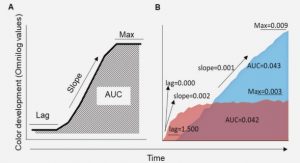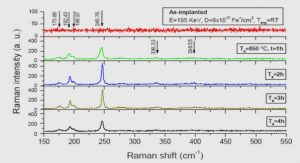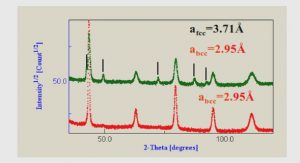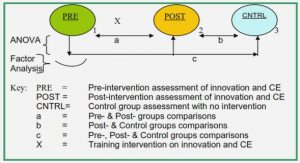Get Complete Project Material File(s) Now! »
Ensuring linkage through communication
Facilities having both testing units and chronic care in the same location are said to be effective for referral and linkage system. The recommendations are to use this opportunity for internal referral system to maintain all HIV clients in the facility. One 93 activity is to apply active referral system that is, escorting clients either by health care providers or by support groups. Moreover, there should be a standardised referral means (like developing and using standardised referral formats), even referring internally. Inter-facility referral and linkage was said to be one the weakest link on the referral and linkage system. The recommendation could focus on the system, health care providers, and programme owners.
Issues of health care providers
Health care providers involved on the referral and linkage process should acquire basic knowledge and skills of client communication and handling in general and counseling in particular. Therefore, all health care providers should be trained on HTC at either preservice at universities or colleges before getting in to work or in-service while working. Health care providers should focus first on the provision of quality counseling service to HIV positive clients, then refer and follow them until getting the chronic care. To do this, health care providers need to use the current strategy, targeted testing as an opportunity which will minimise the work burden and burnout of staff. Health care providers should follow guidelines while providing HIV testing, counseling and referral seriously and strict follow-up by the FMOH/RHB is needed. 95 Clients who become positive have many things that concern them and are very curious during counseling and referral.
Ensuring linkage through communication
It was noted that internal referral system were going well. Although co-located services (HIV testing, counseling and chronic care services available concurrently) revealed increased performance of linkage rate (Fortenberry et al (2012:552), passive referral seemed a challenge during inter- facility referral. Besides the referral mechanism among different facilities were not standardised. Similarly, unstandardised referral mechanism seemed problematic for inter-facility referral. There was no information system established to track clients and receive feedback from receiving facilities. Therefore, the referral system missed the major and important components. This was also supported by a study by Rosen and Fox (2011:11). Since referral directory was not available at facilities, health care providers as well as clients seemed to have problems finding information regarding chronic care availability and community services.
Issues of health care system
Support groups such as adherence supporters, mother support groups, case managers, and data clerks are supposed to minimise the workload of health care providers and support the HIV programme in general. However, respective health care facilities did not use support groups’ potential wisely to actively involve them on the counseling, referral, tracking and feedback. The problem of recording data appropriately on registers was one of the challenges to monitor referral and linkage service appropriately. Moreover, HMIS register missed some of the variables to register referral and linkage clients. Supervision, monitoring and mentoring activities were not going as expected. Despite the government of Ethiopia trying to access primary health care facilities at woreda level, decentralisation of HIV services were still a challenge and clients were not referred to facilities where the nearest proximity affected the referral and linkage process.
Recommendation for programme owners
The programme owners include the Ministry of health and regional heath bureau, and their recommendations as follows: Continue expanding of health facilities in each woreda and equip the necessary materials and human resources for those which already finalised structures and are about to function. MOH/RHB should give attention on the referral and linkage system and it should be included as a key performance indicator. This will help to regularly follow the activities. Guidelines, manuals or other supporting tools should be revised and updated regularly and timely. This will help to incorporate new developments regularly. Orientation or awareness of health care providers, programme implementers should be done regularly for any new developments.
CONTRIBUTION OF THE STUDY
The findings of this study were the springboard for the development of workable strategic framework for strengthening HIV referral and linkage system. The study will help programme managers, implementers and provides to understand the challenges and possible solution for the improvement of the service. It will also contribute the body of knowledge regarding HIV referral and linkage practice. The study will be presented to the ministry of health, regional health bureau; partners and health care providers who participated relevant stakeholders in the form of workshop. The final study will be disseminated to relevant parties through FMOH and RHB. Publications will be done in accredited journals.
TABLE OF CONTENTS :
- CHAPTER 1 ORIENTATION TO THE STUDY
- 1.1 INTRODUCTION
- 1.2 BACKGROUND INFORMATION ABOUT THE RESEARCH PROBLEM
- 1.2.1 Addis Ababa City Administration
- 1.3 RESEARCH PROBLEM
- 1.4 Research Purpose
- 1.4.1 Research objectives
- 1.5 SIGNIFCANCE OF THE STUDY
- 1.6 DEFINITIONS OF TERMS OR CONCEPTS
- 1.7 THEORETICAL FOUNDATIONS OF THE STUDY
- 1.7.1 Methodological assumption
- 1.7.2 Ontological assumption
- 1.7.3 Meta-theoretical assumption
- 1.7.4 Theoretical assumption
- 1.8 METHODOLOGICAL APPROACH AND DESIGN
- 1.9 STRUCTURE OF THE THESIS
- 1.10 CONCLUSION
- CHAPTER 2 LITERATURE REVIEW
- 2.1 INTRODUCTION
- 2.2 BASICS OF HIV/AIDS
- 2.3 HIV TESTING AND COUNSELING
- 2.3.1 HIV testing and counselling (HTC) in Ethiopia
- 2.4 HIV CARE AND TREATMENT
- 2.5 CONCEPT OF REFERRAL AND LINKAGE
- 2.5.1 Structural factors
- 2.5.1.1 Health care providers’ factors on referral and linkage process
- 2.5.1.2 Funding
- 2.5.1.3 Guideline or strategic framework
- 2.5.1.4 Health care system
- 2.5.2 Factor related to process of referral and linkage
- 2.5.3 Referral and linkage system in Ethiopia
- 2.6 CONCLUSION
- CHAPTER 3 RESEARCH DESIGN AND METHODOLOGY
- 3.1 INTRODUCTION
- 3.2 RESEARCH APPROACH
- 3.2.1 Mixed methods research
- 3.2.2 Qualitative research
- 3.2.3 Quantitative research
- 3.2.4 Sequential research
- 3.3 RESEARCH DESIGN
- 3.3.1 Exploratory research design
- 3.3.2 Descriptive research design
- 3.4 RESEARCH METHODS FOR PHASE I
- 3.4.1 Purpose of phase I
- 3.4.2 Objective of phase I
- 3.4.3 Setting
- 3.4.4 Population
- 3.4.5 Sample and sampling method
- 3.4.5.1 Eligibility criteria
- 3.4.6 Data collection
- 3.4.6.1 Data collection approach and method
- 3.4.6.1.1 Phase I, Step
- 3.4.6.1.2 Phase 1, Step II (focus group discussions (FGD)
- 3.4.6.2 Data collection process
- 3.4.6.3 Pre-testing the data collection instrument
- 3.4.7 Data analysis
- 3.4.7.1 Processing and analysing of interview data
- 3.4.8 Trustworthiness
- 3.4.8.1 Credibility
- 3.4.8.2 Dependability
- 3.4.8.3 Confirmability
- 3.4.8.4 Transferability
- 3.5 RESEARCH METHODS FOR PHASE II
- 3.5.1 Purpose of phase II
- 3.5.2 Objectives of phase II
- 3.5.3 Methodology for the development of strategy
- 3.5.3.1 Setting and population
- 3.5.3.2 Sample and sampling method
- 3.5.3.3 Data collection method and process
- 3.5.3.4 Data analysis
- 3.6 ETHICAL CONSIDERATIONS
- 3.6.1 Protecting the right of institutions
- 3.6.2 Protecting participants
- 3.6.3 Scientific integrity
- 3.7 CONCLUSION
- CHAPTER 4 ANALYSIS, PRESENTATION AND DISCUSSION OF THE RESEARCH FINDINGS
- CHAPTER 5 DEVELOPMENT OF STRATEGIES
GET THE COMPLETE PROJECT
STRATEGIES TO STRENGTHEN REFERRAL AND LINKAGE SYSTEM OF HIV POSITIVE CLIENTS IN ADDIS ABABA, ETHIOPIA






